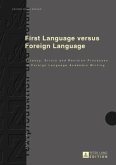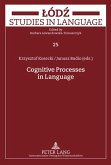The Dynamic Systems Theory perspective offers new lenses to probe into long-term foreign language development. This book reports on findings of a longitudinal multiple-case study on the vocabulary development of eight university-level Chinese learners of English. Framed within the Dynamic Systems framework, the study assumes a holistic perspective towards vocabulary knowledge and aims to project a comprehensive picture of vocabulary development in a typical foreign language learning setting such as the Chinese context. To this end, a wide array of quantitative measurements and qualitative methods was employed. In-depth examination was given to both psycholinguistic and sociocultural processes involved in the complex and dynamic development of vocabulary knowledge. Efforts were also made to establish meaningful links between the learners' cognitive, mental, pedagogical and social contexts. Although the focus is on vocabulary development, what is discussed in the book is applicableto a wide range of topics in foreign language learning and development.
«Zheng's work has the merit of having innovatively opened the path for much needed applied research in L2 vocabulary development, which promises to advance our understanding of some of the factors playing a role in the development of non-native linguistic systems.» (Gloria Cappelli, Linguist List 26.645, January 2015)








